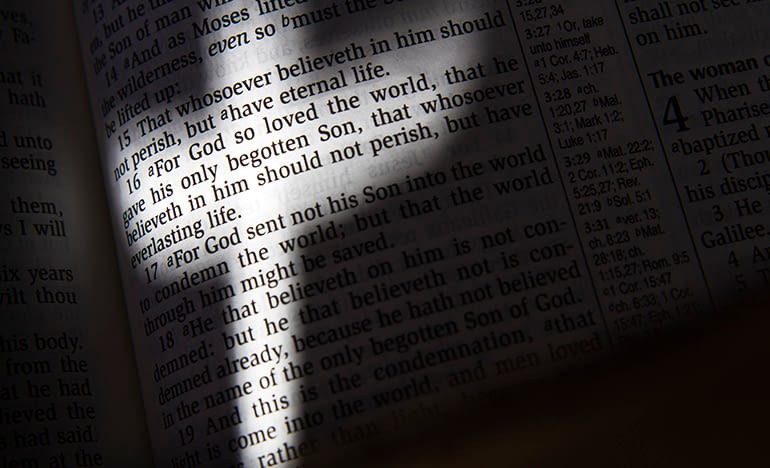Sin is a fundamental relationship— it is not wrong doing, but wrong being— it is deliberate and determined independence from God. The Christian faith bases everything on the extreme, self-confident nature of sin. Other faiths deal with sins— the Bible alone deals with sin. The first thing Jesus Christ confronted in people was the heredity of sin, and it is because we have ignored this in our presentation of the gospel that the message of the gospel has lost its sting and its explosive power.
The revealed truth of the Bible is not that Jesus Christ took on Himself our fleshly sins, but that He took on Himself the heredity of sin that no man can even touch. God made His own Son “to be sin” that He might make the sinner into a saint. It is revealed throughout the Bible that our Lord took on Himself the sin of the world through identification with us, not through sympathy for us. He deliberately took on His own shoulders, and endured in His own body, the complete, cumulative sin of the human race. “He made Him who knew no sin to be sin for us…” and by so doing He placed salvation for the entire human race solely on the basis of redemption. Jesus Christ reconciled the human race, putting it back to where God designed it to be. And now anyone can experience that reconciliation, being brought into oneness with God, on the basis of what our Lord has done on the cross.
A man cannot redeem himself— redemption is the work of God, and is absolutely finished and complete. And its application to individual people is a matter of their own individual action or response to it. A distinction must always be made between the revealed truth of redemption and the actual conscious experience of salvation in a person’s life.

